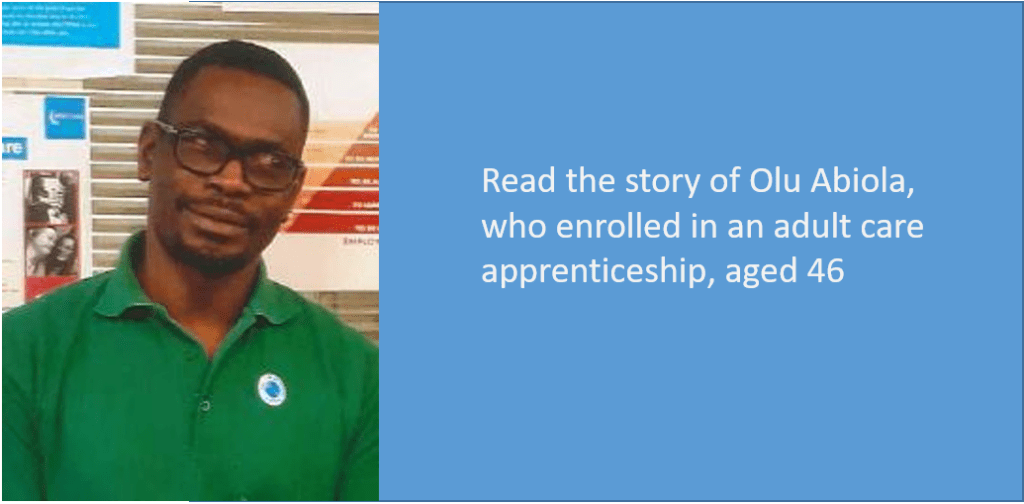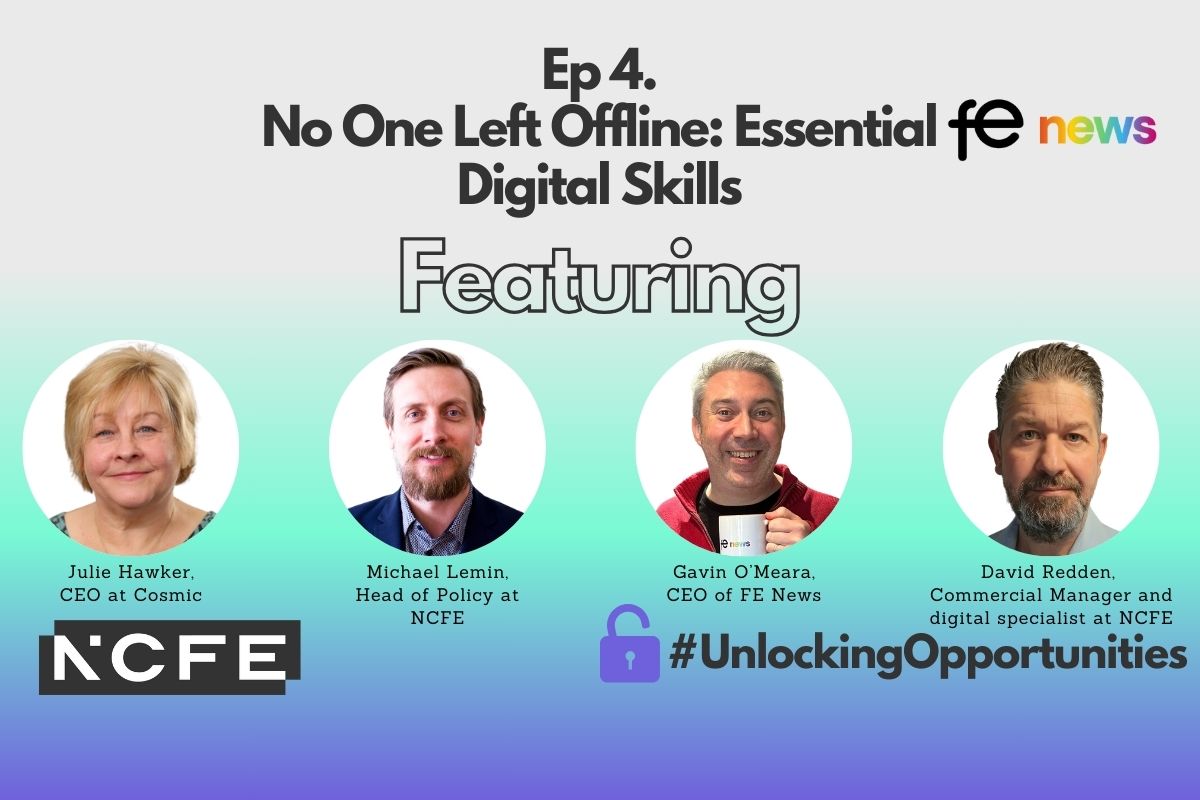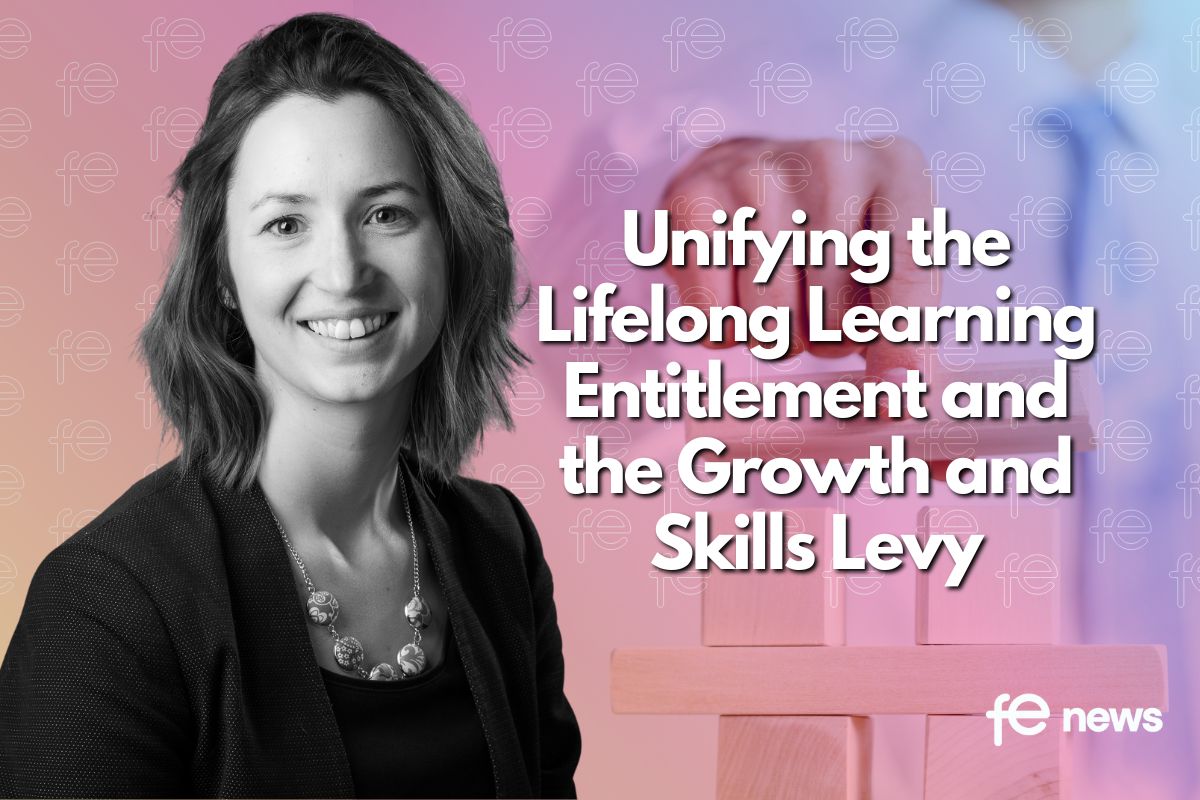From a career in transport to a career in social care…

This June the Sona Peskin became the first person to pass an EPA on the new Adult Care Worker standard. At the age of 46, Olu Abiola, decided to leave his job working in transport to enrol on the same adult care worker apprenticeship:
I originally worked for London Underground, but then I decided I wanted to do something different and more challenging. In the past I had had experienced caring for and supporting some of my relatives. I’d really enjoyed doing this, so I thought that perhaps I could find a job that involved caring for people.
I figured that an apprenticeship might be a good option, because it involved gaining hands on experience whilst studying. Also, I would end up with a qualification that was tailored around what I was interested in.
As part of my apprenticeship, I attend a range of classes, which I really enjoy. The tutors are so knowledgeable and experienced. I have taken a particular interest in Dementia, and learning about the different types. I am always working on improving my understanding of people’s individual experiences, so that I can respond to them more appropriately.
During my studies I’ve also learnt about different health conditions, and been taught about a range of regulations and legislation.
As part of the hands on experience, I work in domiciliary care. This involves making visits to people’s homes. My first call starts at 6.45am. At the moment I am working with another member of the team, and we offer support to a gentleman with dementia.
We help this gentleman prepare to meet the day. But we also ensure that we involve him in conversation, allowing him to lead the topic. So he gets to talk about whatever subject he would most like to – for instance he might talk about when he used to work in a bakery. He has a great sense of humour. I’ll also visit him at lunchtime, and sometime offer support at teatime and bedtime. I know that it’s vital for him to experience continuity with his care worker.
I also support a gentleman with muscular sclerosis. Me and my co-worker are his only visitors in the daytime. I know he enjoys having us there. He also has wicked sense of humour. My colleague doesn’t have a lot of hair and he loves to joke with him about how he requires little shampoo! It is beautiful to see how much he benefits from our visits.
Before I started, I was worried about how I would fit in both working and studying. I am not too good at time management. But my manager has helped me with this, and taught me how to develop a more structured approach.
This apprenticeship has lead me to be more confident. At the start I was very quiet, and in discussions I tended not to say much. But, since I have learned more, and gained more knowledge and experience, I have started to really involve myself in the lively discussions we have. I now feel happy to discuss issues surrounding social care and health conditions, and to contribute suggestions as to how we can make improvements for the people we support. This goes for my interactions outside of work too.
During my apprenticeship, I’ve also learned how to share my learning with other colleagues. I’ve seen the good impact this has had on both them, and the people we support. I have also discovered that I have leadership skills, which I can use to improve our service as a team.
I believe that I will have the opportunity to progress within my career in social care. There are a full range of options open to me that could enable me to continue to learn and grow. When I complete my apprenticeship, I hope to be promoted to a management role. It would be great to be able to influence and improve upon the quality of services offered to people in need of compassionate care from skilled workers in my area.
Olu Abiola, Lead Adult Care Worker, Level 3 standard, Woodford Homecare, trailblazers for the Institute.











Responses